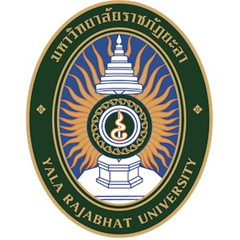Edukasi Pemanfaatan Aplikasi Ayat untuk Meningkatkan kualitas Hapalan Quran Santri RQ Azmuna Desa Pematang Berangan kabupaten Rokan Hulu
DOI:
https://doi.org/10.30983/dedikasia.v5i1.8746Keywords:
Ayat Apps, memorizing Quran, muhafiz QuranAbstract
References
’Itir, N. (1993). Ulum al Quran al Karim (1st ed.).
Erdinna, S., Wati, S., Husni, A., & Sesmiarni, Z. (2022). Implementasi Pendidikan Karakter Melalui Tahfidz
Al-Qur�an di SMAN 3 Payakumbuh. 4(5).
Gunawan, S., Noor, T., & Kosim, A. (2022). Pembentukan Karakter Religius melalui Program Hafal
Al-Qur�an. Jurnal Pendidikan Tambusai, 6(2), 11817.
Handayani, M. (2020). Upaya Guru dalam Membentuk Generasi Qur�ani pada Siswa melalui Program Tahfidz
Al-Qur�an. 37(1), 1–5.
Latipah, E. (2022). Motives, self-regulation, and spiritual experiences of hafizh (the Qur�an
memorizer) in Indonesia. International Journal of Instruction, 15(1), 653–672.
https://doi.org/10.29333/iji.2022.15137a
Mustafa, N. M., Mohd Zaki, Z., Mohamad, K. A., Basri, M., & Ariffin, S. (n.d.). Development and
Alpha Testing of EzHifz Application: Al-Quran Memorization Tool. Advances in Human-Computer
Interaction, 2021, 1–10. https://doi.org/10.1155/2021/5567001
Nurdiah, N., Suprapto, S., Maujud, F., & Nasri, U. (2023). Manajemen Rumah Qur�an dalam
Mencetak Generasi Qur�ani. Jurnal Ilmiah Profesi Pendidikan, 8(1), 161–170.
https://doi.org/10.29303/jipp.v8i1.1167
Rahman, S. (2020). Membumikan al-Quran di Negeri Seribu Suluk (Studi Lapangan di Islamic
Center Rokan Hulu). Akademika: Jurnal Keagamaan Dan Pendidikan, 16(1), 1–13.
Sobirin, M. (2018). Innovate Way of Indonesian Muslim Millenial to Memorize the Quran: (QuranMemo Community and the Making of Virtual Social Network). ICONQUHAS.
Wahidi, R., Nasrullah, Amaruddin, Syafril, Khairuddin, F., & Murni, D. (2024). Pelatihan dan
Pendampingan Peningkatan Manajemen Pengelola Rumah Tahfiz. Jumadi: Jurnal Masyarakat
Mengabdi, 1(1).
Yamin, M. A., & Astutik, A. P. (2021). Akulturasi Panca Indra Metode Yadain li Tahfizil Qur�an.
Tajdid, 20(2), 29–37.
Zarkasyi, B. al D. M. ibn A. (2006). al Burhan fi Ulum al Quran. Dar al Hadis.
Zarqani, M. A. A. (1996). Mana>hil al-�Irfa>n fi> al-�ulu>m Al-Qur�a>n
Downloads
Published
How to Cite
Issue
Section
Citation Check
License
Copyright (c) 2025 syahrul rahman, Nur Azimah

This work is licensed under a Creative Commons Attribution-ShareAlike 4.0 International License.
Authors who publish with this journal agree to the following terms:
- Authors retain copyright and grant the journal right of first publication with the work simultaneously licensed under a Creative Commons Attribution License that allows others to share the work with an acknowledgment of the work's authorship and initial publication in this journal.
- Authors are able to enter into separate, additional contractual arrangements for the non-exclusive distribution of the journal's published version of the work (e.g., post it to an institutional repository or publish it in a book), with an acknowledgment of its initial publication in this journal.
- Authors are permitted and encouraged to post their work online (e.g., in institutional repositories or on their website) prior to and during the submission process, as it can lead to productive exchanges, as well as earlier and greater citation of published work (See The Effect of Open Access).




